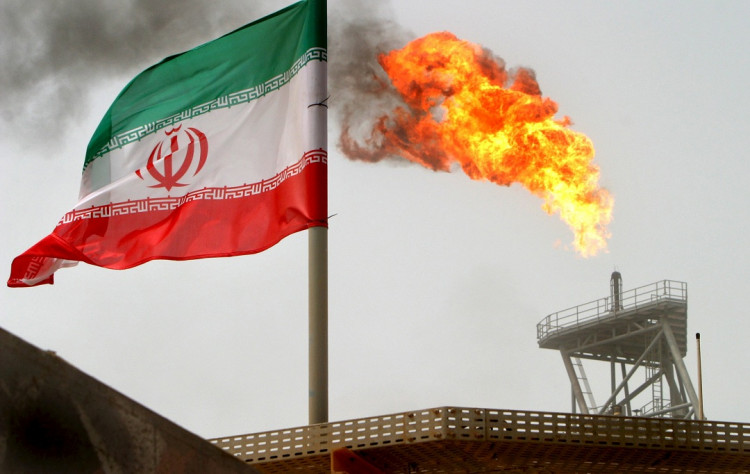Oil prices plunged 8% Monday after Iran retaliated against U.S. airstrikes with a missile attack on a U.S. base in Qatar that left global energy flows untouched. Markets interpreted the move as symbolic and restrained, easing fears of disruption to oil exports through the vital Strait of Hormuz and lifting U.S. stocks.
West Texas Intermediate (WTI) crude, the U.S. benchmark, fell more than $5 to settle below $68 a barrel, marking its steepest one-day decline in nearly two years and the lowest level since mid-June. Brent crude, the international benchmark, dropped similarly to close near $71.50, with both contracts posting intraday losses nearing 9%.
Markets viewed the strikes "as more of a symbolic retaliatory attack rather than one to result in significant damage to USA assets in the region," said Andy Lipow, president of Lipow Oil Associates, in a note to clients.
Iran's Islamic Revolutionary Guard Corps fired a barrage of ballistic missiles at the Al Udeid Air Base southwest of Doha, in what it claimed was a proportional response to the U.S. strike on three of its nuclear facilities over the weekend. U.S. officials confirmed there were no casualties or damage.
Concerns about possible closure of the Strait of Hormuz, through which about 20% of the world's oil supply transits, dissipated quickly as Iran refrained from targeting maritime traffic. Tracking data showed some supertankers temporarily altered course, but QatarEnergy confirmed there was no disruption to liquefied natural gas or crude exports.
"In one sense, we've seen this movie before," Lipow said. "All the geopolitical tensions we've seen in the Middle East, whether it's Israel, Iran or others, we have yet to see the closure of the Strait of Hormuz."
The early-session spike in oil prices-up nearly 6% in overnight Asian trading-quickly reversed. "This may be that market selling the news, especially if Iran's retaliation had limited impacts," said Kevin Book, head of research at ClearView Energy Partners.
Equities surged on the diminishing likelihood of broader escalation. The S&P 500 climbed 1% to 6,025.17, the Dow Jones Industrial Average added 374.96 points to 42,581.78, and the Nasdaq Composite rose 0.9% to 19,630.97.
President Donald Trump, who authorized the U.S. strikes as part of "Operation Midnight Hammer," addressed markets directly Monday on Truth Social, posting: "EVERYONE, KEEP OIL PRICES DOWN. I'M WATCHING! YOU'RE PLAYING RIGHT INTO THE HANDS OF THE ENEMY. DON'T DO IT!"
Energy analysts said Iran's choice to target a hardened military site rather than vital oil infrastructure may reflect a desire to deescalate while projecting strength. "Unless there are indications of further Iranian retaliation or escalation by Israel or the U.S., we may see some geopolitical risk premium come out of the price in subsequent days," Energy Aspects wrote.
Federal Reserve watchers noted that lower energy prices could relieve inflationary pressures. Treasury yields fell as Fed Governor Michelle Bowman indicated she would support a rate cut if inflation "remains contained." The 10-year Treasury yield dropped to 4.33%, while the 2-year yield slipped to 3.84%.
In the absence of further supply disruption, HSBC said Brent could spike above $80 if new threats to shipping emerge but sees prices stabilizing if the conflict remains contained. The bank emphasized the market's delicate balance between geopolitical fear and economic fundamentals.




